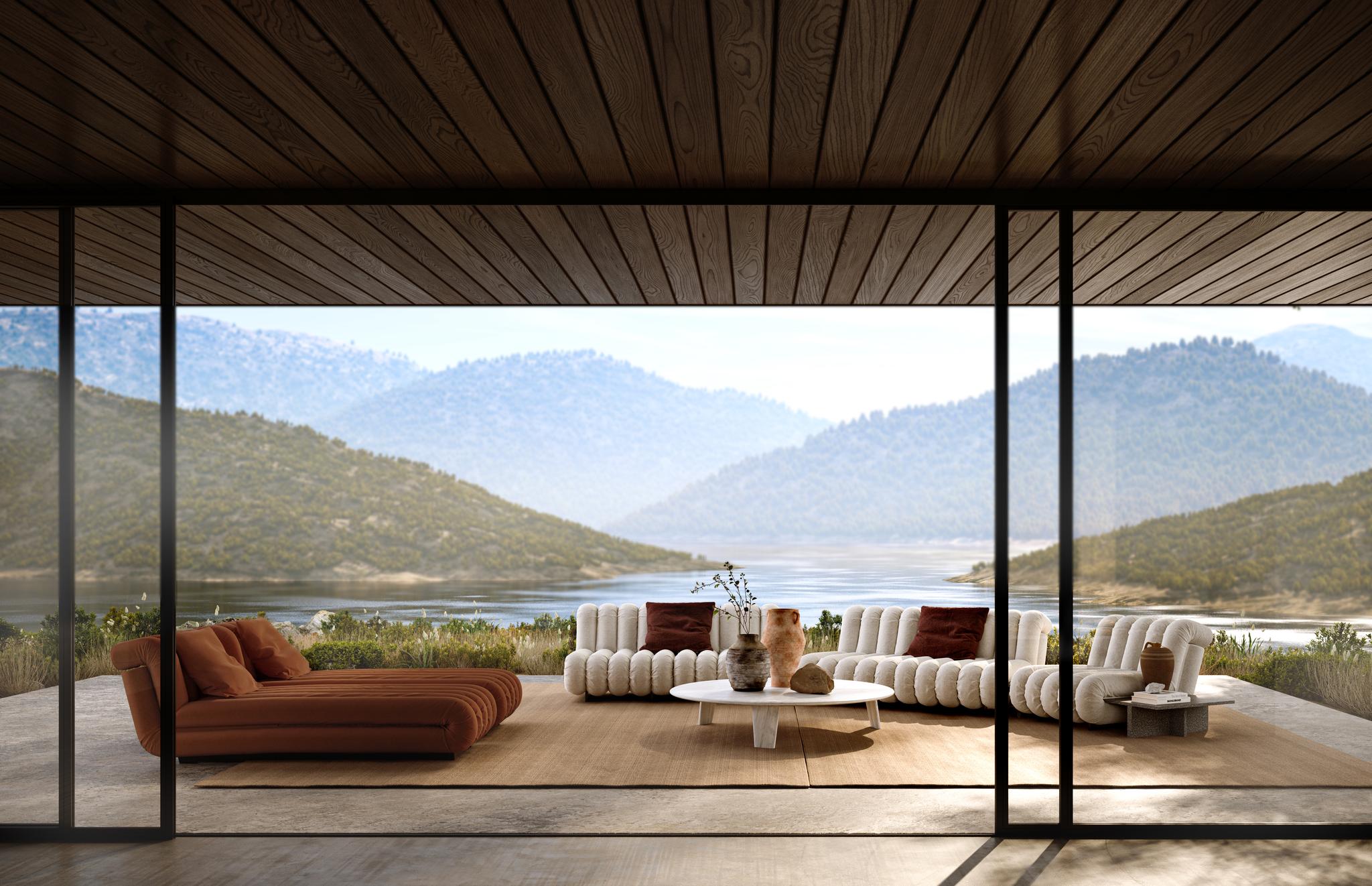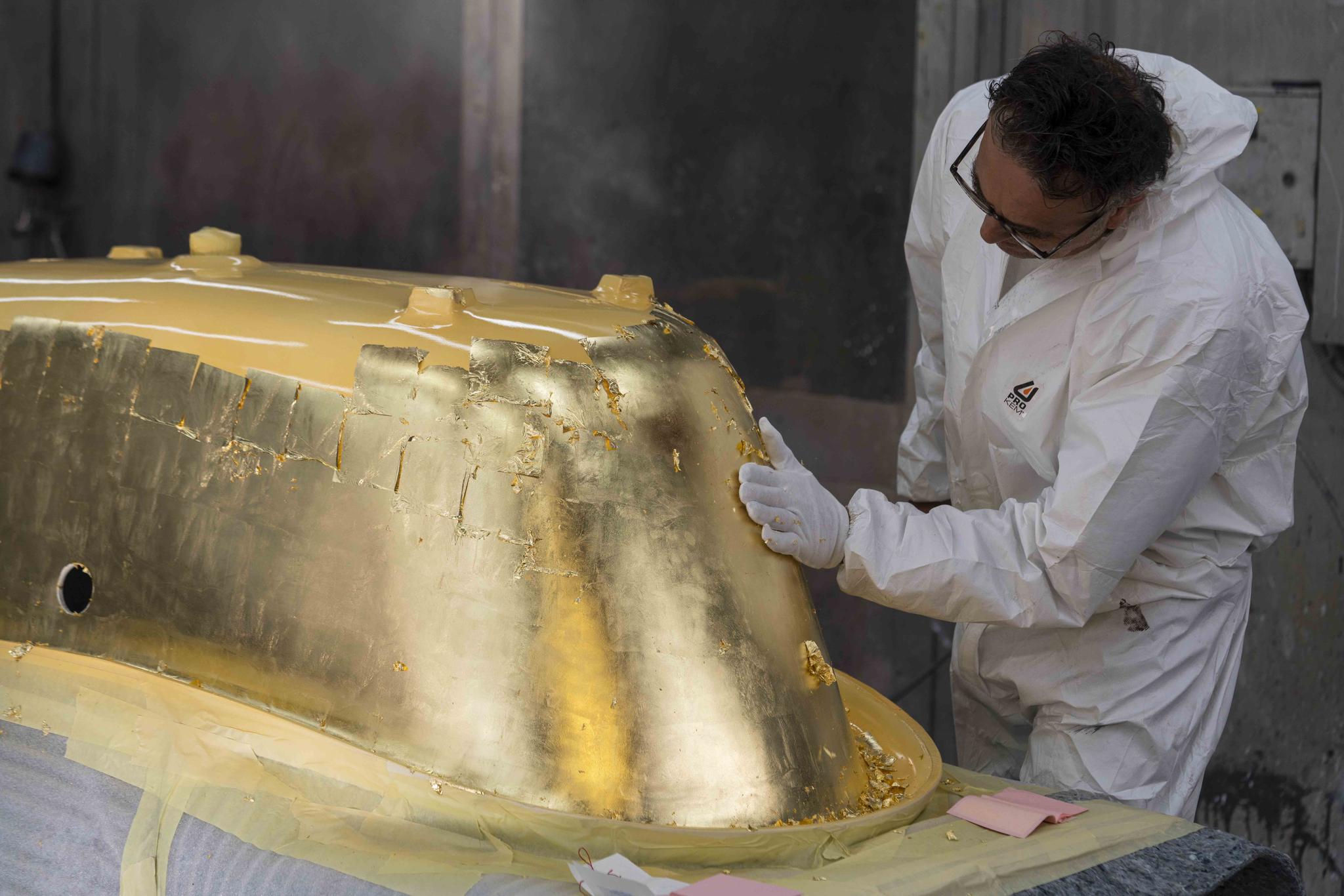
ROU Materiaal
Catrame Desk
USD 8,455
Ships in 2-3 weeks

Meet Marzia De Lorenzi and Monica Cortesi, founders of the artisanal brand ROU Materiaal, whose name evokes in Afrikaans raw materials and radical handwork, and discover their unique approach to authentic craftsmanship through natural mediums such as resin and discarded wood to create furnishing pieces and décor accessories.
Marzia De Lorenzi and Monica Cortesi share many passions: art, design, and the city of Paris. Thanks to their strong connection, they were able to establish ROU Materiaal in 2013, a furniture firm whose name derives from Afrikaans meaning “raw material”, highlighting the brand’s distinctive style that connects "primitive" materials to a deep study of contemporary shapes and textures using resins, acrylics, stucco, and cement.
From sculptural tables to breathtaking décor, their pieces origin from salvaged woods of century-old trees with an entirely Made in Italy manufacturing projects, turning discarded materials into contemporary pieces perfect for homes with character and personality.
Read our interview with Marzia and Monica on Artemest magazine, and discover how the two came together and created a personal aesthetic combining craftsmanship with art.
What inspired your choice to use such refined raw materials of Afrikaans influence?
Both of us partners, although having two completely different careers one in architecture and the other in management, have expressed the desire of working with a strong, textural, and rough material created through very radical handwork. The name “ROU Materiaal” communicates our research of very ancient material, through its sound and linguistic origin; it also suggests a contemporary minimalist influence, a fusion between the language of African origin and the Northern contemporary world.
Which material or technique is the most peculiar among the ones you use?
The most peculiar technique is the use of resin obtained in unusual and technically “wrong” ways, in order to achieve imperfect and random results with a unique flair.
Tell us about the creative process and the production of one of your most iconic pieces.
All of our pieces share a creative process which includes the choice of the raw material and the type of resin-work. Our selection of raw materials is composed of solid woods of centennial trees, cut down because they were sick or dead, and then rejected by the industry for their imperfect character which we personally consider to be very expressive. The raw material of our most iconic piece, “Sezione Superbig05”, was precisely chosen for its expressivity: it is a still “fresh” elm wood that features three-dimensional bulges on its surface, enhanced with resin, sand, and plasters spread on various levels to create a unique textural piece of strong chromatic value.
How would you describe your style and philosophy?
Ours is a brutalist and textured style that seeks for a nature-inspired aesthetic, sculpted by a human gesture that is both random and premeditated. We want to create a forceful piece of nature, which is shaped by human hands into a contemporary design, boasting a unique expressivity often obtained with unusual chemical processes. Our philosophy is that of a feasible contemporary nature that provokes emotions for contemporary and future homes.
How do you expect ROU Materiaal to evolve in the coming years?
In the next few years we expect to reach national and international networks of art design galleries, and to continue with our custom-made projects for private homes. We also hope to continue collaborating with renowned brands and hotels, and more generally with all the environments that need a piece of functional decor with a strong emotional charge.
What connections do you feel with your territory? Which place would you recommend to absolutely visit in Ravenna?
We are connected to our territory through the research for raw materials, which we find at our local suppliers, and in terms of techniques, such as recreating the typical “print of Romagna” in a contemporary aesthetic on fabric. The use of resin instead, is absolutely innovative and concerns the world of restoration more than anything. Sometimes we even add mosaic tiles typical of Byzantine art, which reached its highest peak in Ravenna. We would certainly recommend a visit to San Vitale, but also the historical printing workshops of Romagna deserve a stopover. Lastly, a walk through our pine forests is definitely a must: their beauty was praised by poet Lord Byron, and the unique scents of the trees and their resin will seduce any visitor.

Born in the historic design district of Brianza, Exteta takes inspiration from the Italian art of …

Devon&Devon is a luxury design and manufacturing company specializing in bespoke interior solution…